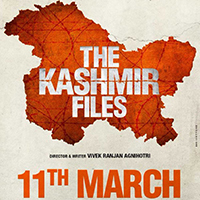The Kashmir Files: Review
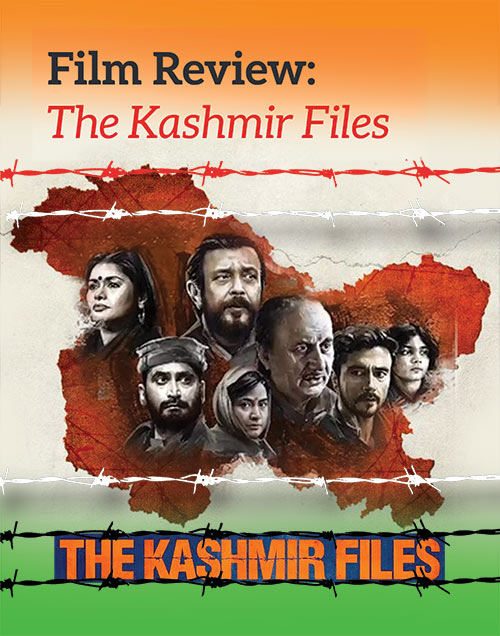
Indian cinema has not seen an attempt of this kind before. It is not the so-called “Real Life Story in Celluloid.” Rather, it is the reality that has been presented in celluloid without the coating of glamour, melodrama, or imagination. The Kashmir Files is a film that makes the viewers aware of what exactly happened in the picturesque Kashmir Valley in 1990 and how terrorism brutally monitored the genocide of Kashmiri Pandits making all the wings of administration defunct. The film depicts how ruthlessly these Kashmiri Hindus were driven out of their motherland and never allowed to resettle.
Director Vivek Ranjan Agnihotri narrates the inhumane killings as well as the sufferings of the Kashmiri Hindus with sincere honesty that will leave viewers feeling the pain and distress experienced by the Hindus in their own place. Not only that, but it also depicts the cruelty of the then administration under the leadership of Chief Minister Farooq Abdullah who virtually led this ethnic cleansing. The story revolves around the Kashmiri Pandit, Pushkar Nath Pandit, and his family facing the ordeal of genocide, atrocities, and extreme torture by the Jihadi terrorists. For example, his son was killed and his daughter-in-law was forced to eat food soaked with her husband’s blood.
Brahma Dutt, an IAS officer played by Mithun Chakraborty, and DGP Harinarayan played by Puneeth Issar, are examples of government officials who silently witnessed the killings. Pushkar Nath was spared from the killings and his grandson Krishna Pandit, an infant then, grew up unaware of the sufferings of his parents and the entire class of Hindu Pandits in Kashmir. He joined the University in Delhi named ANU (changed the name in the film from JNU or Jawaharlal Nehru University) and found himself under the influence of Professor Radhika Menon, a self-styled secular and Left intellectual supporting terrorism in the name of ‘Azaadi’. The character of Radhika Menon played by Pallavi Joshi is based on Nivedita Menon, Professor of Political Thought at JNU and a Feminist Scholar.
Krishna joins the student election under the influence of Radhika Menon. However, after the death of his grandfather Pushkar Nath, he visits their ancestral place to spread his ashes as per his last wish and comes to know the truth about what happened in the 1990s. He comes back and gives a speech for university presidential elections and narrates the truth of the sufferings of his family.
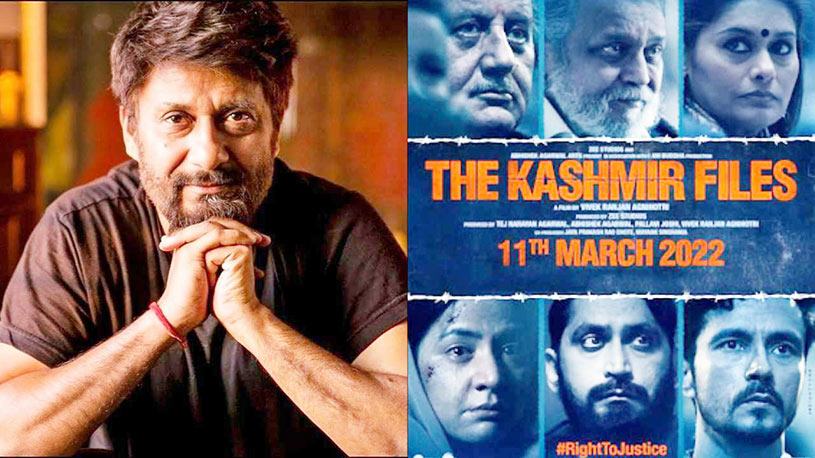
The performance of the cast is a valuable highlight that gives life to this film. Anupam Kher as Pushkar Nath Pandit gives a performance that will be remembered through the ages. Being a Pandit in real life, he depicts the character with his talent and feeling. Darshan Kumar as Krishna Pandit, Pallavi Joshi as Radhika Menon, Mithun Chakraborty as Brahma Dutt, and Puneeth Issar as DGP Harinarayan all give excellent support to the film.
The film has some dialogue that aroused nationalistic feelings among the audience and prompted the vital question of how such a brutal incident could occur in a place that is within the Indian Territory. The courageous director Vivek Ranjan Agnihotri dared to show certain sides of the incident, such as the silence of the then Prime Minister Rajiv Gandhi, approval of the then Chief Minister Farooq Abdullah and Central Home Minister Ghulam Nabi Azad, and the unimaginably malicious incidents like the merciless killings of 25 people, ripping clothes off Hindu women in public, and so on.
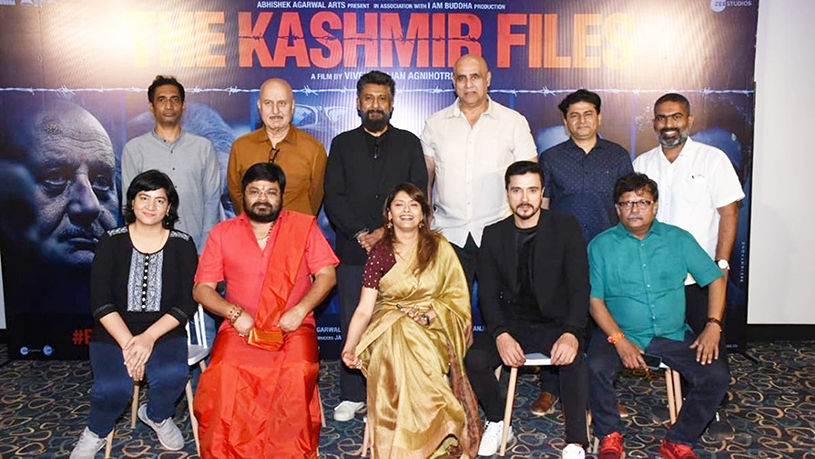
The film is a must-watch for all Indians. It evokes a feeling of disregard as well as conscious resentment of terrorism. This bold film has raised expectations from the talented filmmaker for digging out more truth for the benefit of ‘New India’.
Who is Nivedita Menon?
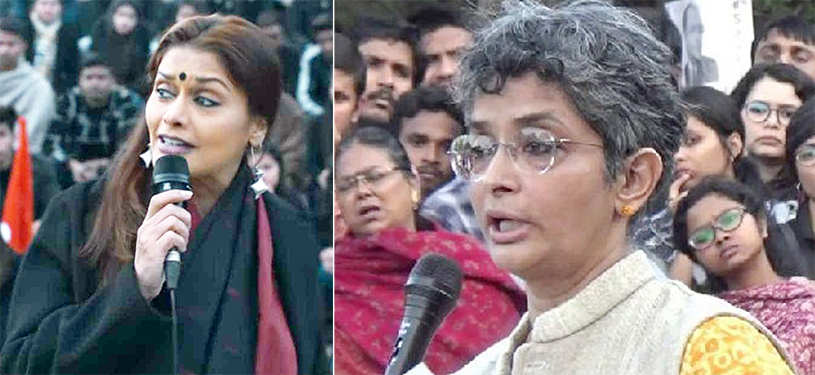
Nivedita Menon is currently a professor of Political Science in Feminist theory, Political theory, and comparative politics at Jawaharlal Nehru University or JNU. Previously, she was associated with Lady Shri Ram College of Delhi University. Her strong communist thinking is the primary reason she is known in the world today. This thinking has also led her to recite various anti-national slogans in the past and speak out against the Union Territory of Jammu and Kashmir.
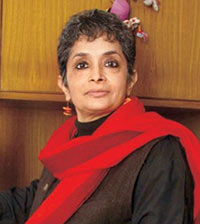 In 2016, during JNU protests, Nivedita Menon gave her infamous lecture on nationalist principles and Kashmir becoming a part of the Union of India. A glimpse of that lecture is also shown in the movie The Kashmir Files. In her lecture, she said that India has illegally occupied Kashmir. A police complaint was filed against her by ABVP’s members after this. When the matter got out of hand, Menon claimed to have made no such remarks against India.
In 2016, during JNU protests, Nivedita Menon gave her infamous lecture on nationalist principles and Kashmir becoming a part of the Union of India. A glimpse of that lecture is also shown in the movie The Kashmir Files. In her lecture, she said that India has illegally occupied Kashmir. A police complaint was filed against her by ABVP’s members after this. When the matter got out of hand, Menon claimed to have made no such remarks against India.
On another occasion, during a lecture, she called Hinduism the most radical religion in the world. She also said Hindu society is the most violent society in the world. She makes such allegations without any proof or research. She also called out the Uniform Civil Code as anti-Muslim.

